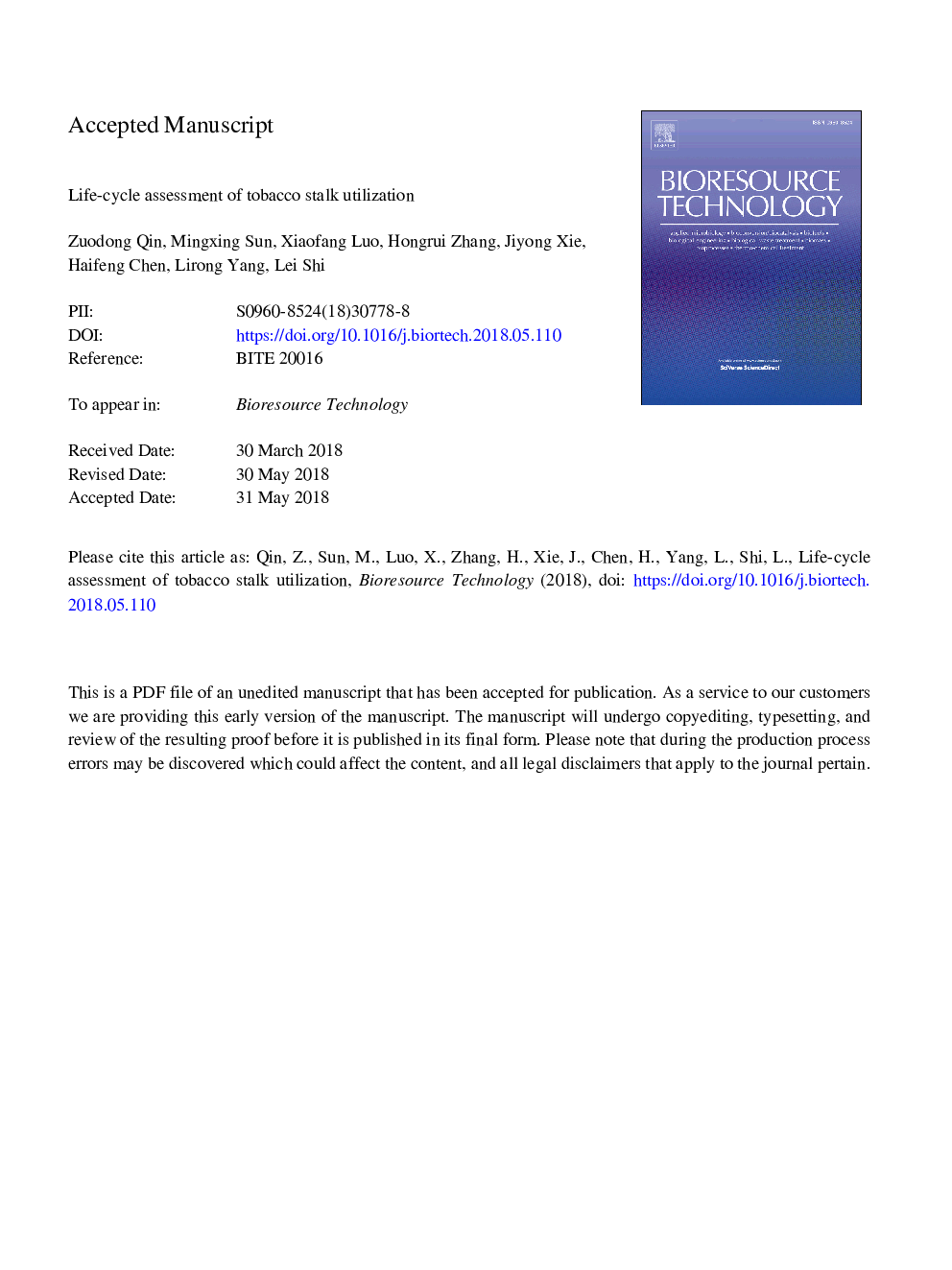| Article ID | Journal | Published Year | Pages | File Type |
|---|---|---|---|---|
| 7066274 | Bioresource Technology | 2018 | 37 Pages |
Abstract
The aim of this work was to investigate the environmental performance of different tobacco stalk methods using Life Cycle Assessment (LCA). Three scenarios were established: biodegradable plant nursery tray (PNT) making, open burning, and indoor incineration. The results showed that 3380, 1590, 1320â¯kg CO2-eq, 25.7, 1.97,1.99â¯kg SO2-eq are generated for global warming and acidification in biodegradable PNT making, open burning, and indoor incineration scenarios respectively. The overall environmental impact for biodegradable PNT making is higher than that of open burning, and indoor incineration. The dominant factors contributing to environmental impact in biodegradable PNT making include electricity consumption, solid waste landfill etc. Through technical optimization, the environmental impact of biodegradable PNT making could be reduced greatly. Biodegradable PNT making with tobacco stalk, which follows the cyclic economy principles of maximum material utilization and waste minimization, provides an alternative for agricultural residue utilization.
Related Topics
Physical Sciences and Engineering
Chemical Engineering
Process Chemistry and Technology
Authors
Zuodong Qin, Mingxing Sun, Xiaofang Luo, Hongrui Zhang, Jiyong Xie, Haifeng Chen, Lirong Yang, Lei Shi,
